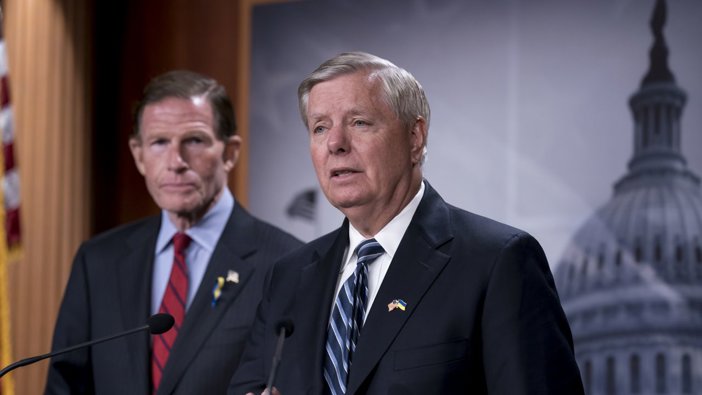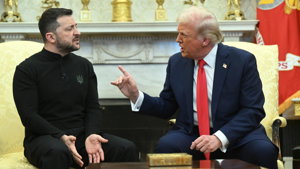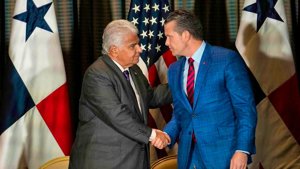
Senate Advances Major Russia Sanctions Bill
Bipartisan Senate bill to impose massive tariffs on Russian energy gains White House support amid shifting Trump stance.
Senate Pushes Sweeping Russia Sanctions as White House Alters Course
A bipartisan effort in the U.S. Senate to deliver a powerful new sanctions package against Russia has gained fresh momentum, with the White House now signaling support after President Donald Trump’s change in tone toward Russian President Vladimir Putin.
The legislation, authored by Senators Lindsey Graham (R-S.C.) and Richard Blumenthal (D-Conn.), would impose tariffs of up to 500% on countries that purchase Russian energy products, including oil, gas, and uranium. The bill is designed to severely limit revenue flowing into Moscow’s war effort, particularly from China and India, which together account for nearly three-quarters of Russia’s energy exports.
The measure was initially sidelined as lawmakers rushed to pass President Trump’s “big, beautiful bill” before the July 4 deadline, but it has re-emerged as a top priority after the completion of a lengthy reconciliation process. Graham, one of the bill’s sponsors, expressed confidence that the White House is now on board, saying, “My goal is to get them on the president’s desk before the August break. We got 85 co-sponsors… I told the president last week about it. He thinks the bill will be helpful.”
White House Support Reflects Changing Attitude Toward Putin
The shift in administration support follows months of hesitation as President Trump had sought to keep channels open for peace talks between Ukraine and Russia. However, both Graham and Blumenthal have cited a new understanding at the White House that Putin’s actions show little interest in peace. Blumenthal noted, “Trump is seeing what we’ve all recognized, which is that Putin is playing the United States for free. He’s stalling and stonewalling, continuing his aerial reign of terror on Ukrainian civilians and his atrocities against kidnapped children.”
Blumenthal explained that a presidential waiver included in the bill would allow for flexibility in how the sanctions are imposed, addressing concerns about potential impacts on global financial systems and America’s allies. “The waiver authority is working out technical issues,” he said, emphasizing that the administration now sees the bill as essential leverage against Putin’s aggression.
Senate Majority Leader John Thune (R-S.D.) said he hopes to bring the bill to a vote before the end of the month. “It’s an important message to send, especially now, and I think it’s leverage that we need,” Thune commented, highlighting the unified efforts of the Senate, House, and White House to finalize the legislation.
Internal Debate and GOP Dissent
Despite broad bipartisan backing and the endorsement of House Speaker Mike Johnson (R-La.), the proposal is not without controversy. Senator Rand Paul (R-Ky.) sharply criticized the bill as “not a Russian sanctions bill. It’s a worldwide embargo tariff bill.” Paul argued that the sweeping tariffs would harm American trade relationships and threaten economic ties with key partners, including European countries dependent on Russian energy and China.
“It’s the worst, most economically illiterate bill ever to be presented in modern history,” Paul charged, warning of serious repercussions if the tariffs are applied indiscriminately to all nations trading with Russia.
As debate continues, supporters argue that the new sanctions are needed to disrupt Russia’s war financing and demonstrate American resolve. Lawmakers face the challenge of balancing economic impacts on allies and global markets with the urgent goal of countering Moscow’s aggression. The outcome of this legislative push could have far-reaching consequences for international trade and diplomatic efforts to end the conflict in Ukraine.






